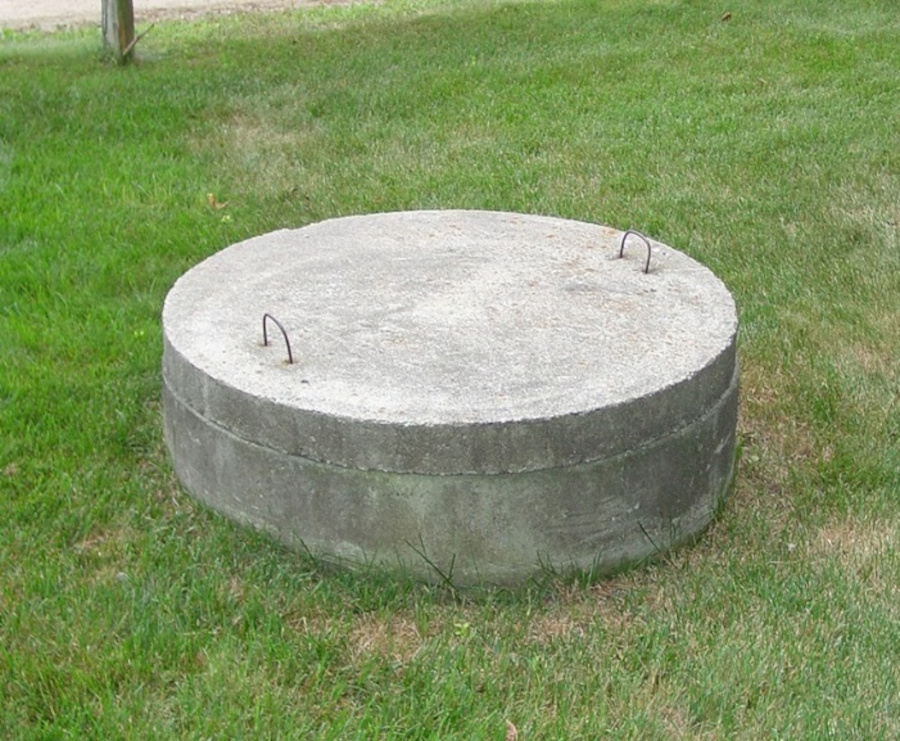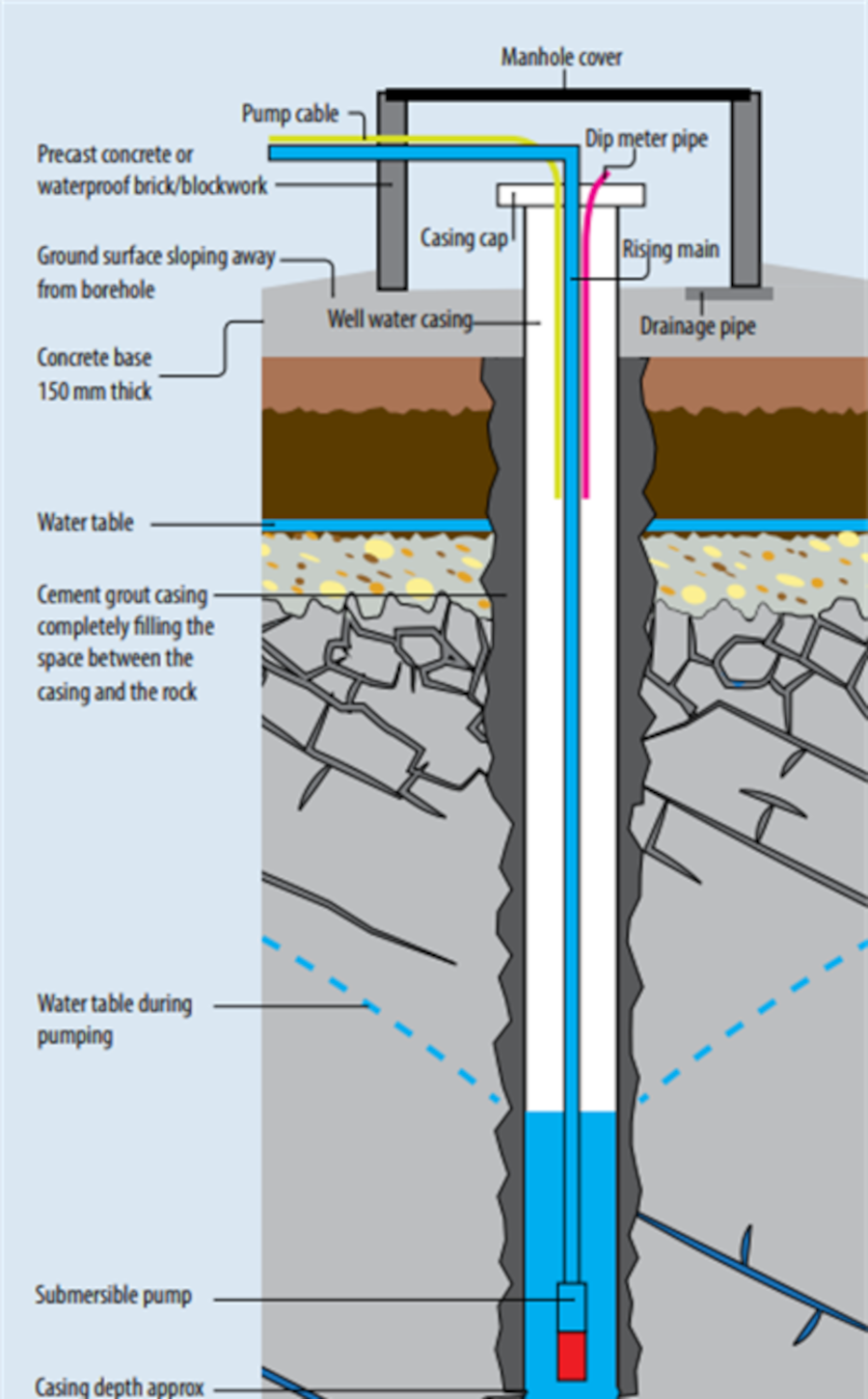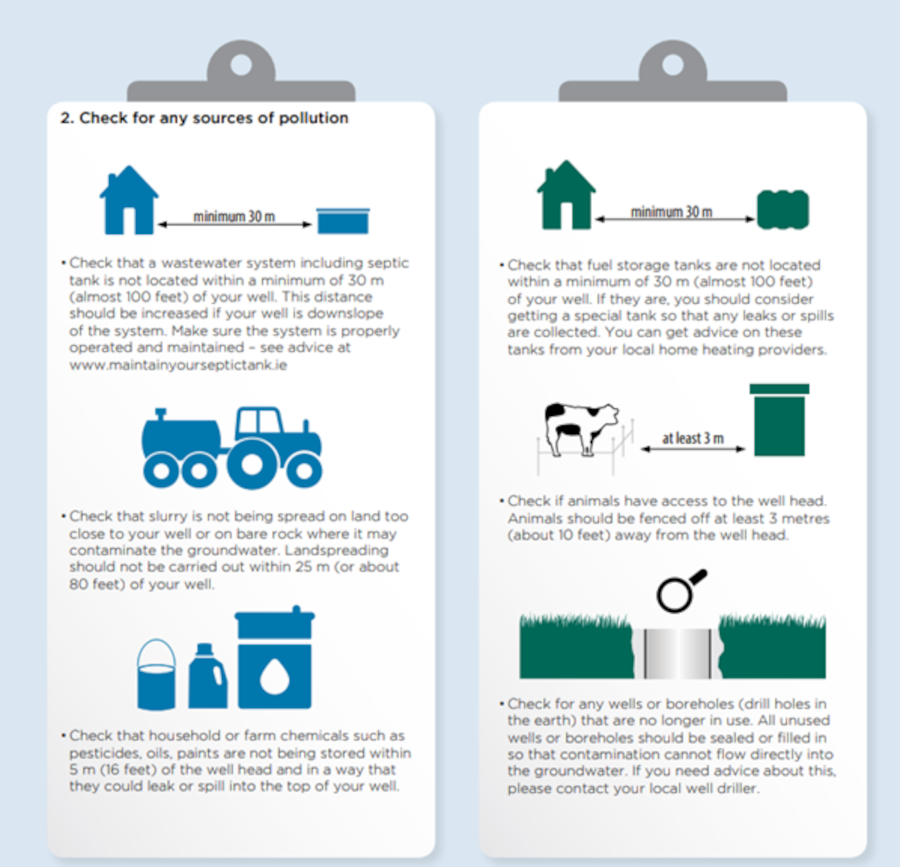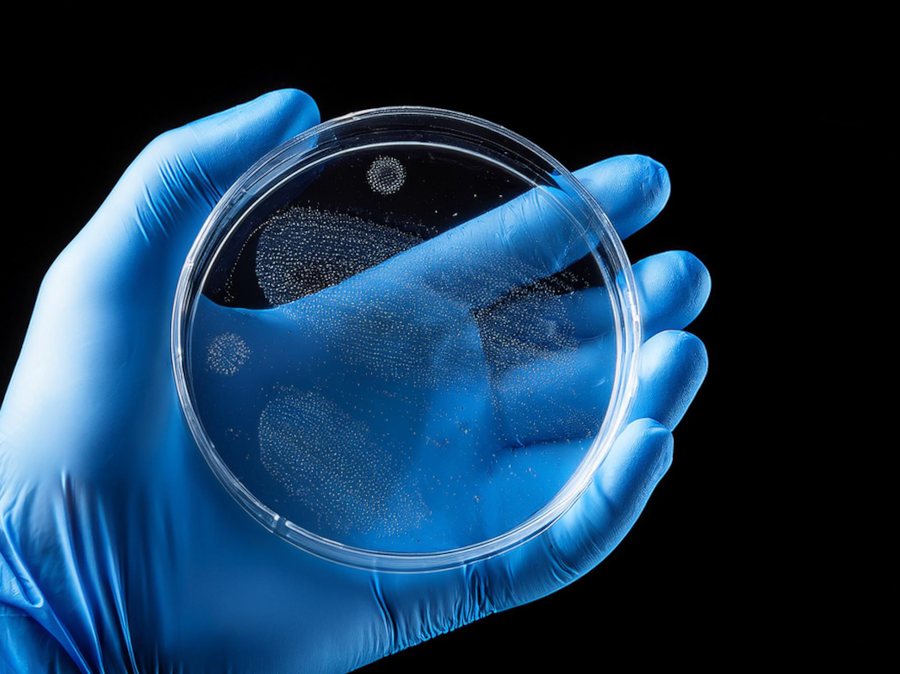Small Private Supplies

If you use water from a private water supply as part of a public or commercial activity, you may need to register to get your water checked by Cavan County Council, to ensure the water supply is safe for drinking in line with the Drinking Water Regulations 2023.
Premises on our register include, schools, creches, shops, community centres, public houses, food establishments, etc. If you think that you may need to be on our register for monitoring, or require more information, contact our Environment Department on 049 437 8486
Private Domestic Wells Supplies
If you are a domestic property and you are served by a private well supply, you need to make sure the water from your well is clean and uncontaminated.
Domestic properties served by private well supplies do not fall under Cavan County Council’s remit for monitoring, however we would recommend that, at a minimum, your well supply is tested annually for microbiological contamination, and every three years for chemical contamination. Further information on accredited laboratories can be found below.
Protecting and maintaining a safe and secure well supply
Many people assume that because their water comes from a well or a spring, it is safe to drink. However, many private wells are contaminated with bacteria, parasites and other natural or man-made contaminants, that can be harmful to people's health.
Research indicates that approximately one third of wells tested in Ireland have found the presence of E.coli, a harmful bacteria that can make you sick.
Adequate, well siting, well construction, well protection, and well water testing are the best ways to ensure drinking water is safe for consumption
Well siting
Choose your well location carefully!
A well should generally be located upgradient, and as far away as possible, from potential sources of pollution, such as septic tanks and farmyards.
Well Construction
Adequate well construction is vital!
• A well should be constructed in line with the EPA’s guidance or IGI (Institute of Geologists of Ireland) Guidelines – guidelines for drilling wells for private water suppliers.
• Drinking water wells are approximately 60-120 meters (197-394 feet) deep. Deeper groundwater is cleaner than shallow groundwater.
• The well casing should be installed deep into the bedrock somewhere between 20-40 meters (about 65-131 feet).
• The space around the well water casing should be filled with cement grout to prevent shallow contamination getting into the well.
• The pump should be inside the well water casing, if possible, to protect it.
• Clean groundwater from deeper in the rock then flows up to the pump and into the property.

How to check my well is safe?
• Make sure your well head is protected and that there are no gaps around the top of the well water casing, where contamination can enter. Any gaps should be filled with cement (or grouted up).
• The space between the casing and the rock needs to be filled so that shallow contaminated groundwater does not contaminate the deeper cleaner groundwater that is pumped from your well to your property
• Ensure that all sources of pollution are as far away as possible.
How to check for sources of pollution to your drinking water well

Testing your well Water

• Test your well water at least once a year, ideally after heavy rainfall, as contamination is likely to be high at this time.
• Taking a sample from your well is a snapshot in time. If your results are clear, this does not necessarily mean that your well water will not be contaminated at a different time. This is why it is important to regularly test the well water, particularly for microbiological contamination.
• Please visit https://www.inab.ie/inab-directory/laboratory-accreditation/testing-laboratories/ for a list of accredited laboratories.
What to do if your well water is contaminated?
1. Where possible remove any potential sources of contamination away/down gradient of the well.
2. Ensure that your well is adequately capped and sealed.
3. Disinfect your well, supply pipe and the internal plumbing system. ( Please find further information on disinfecting your well, pipework & internal plumbing at https://www.epa.ie/environment-and-you/drinking-water/household-wells/)
4. Install a suitable treatment system, such as ultraviolet light (UV), Reverse Osmosis (RO) etc. (Please note, the type of treatment required will depend on what is contaminating the well.)
Further information on private well supplies can be found at https://www.epa.ie/environment-and-you/drinking-water/household-wells/.

